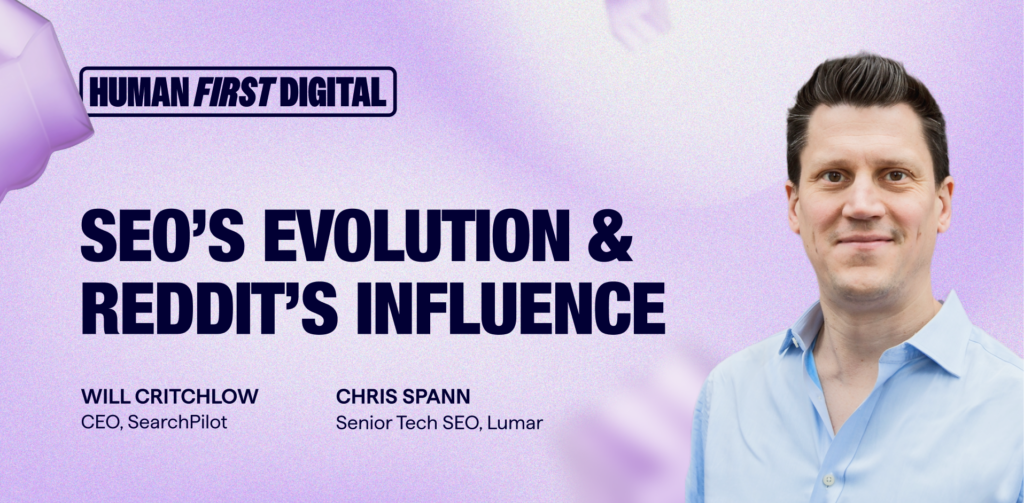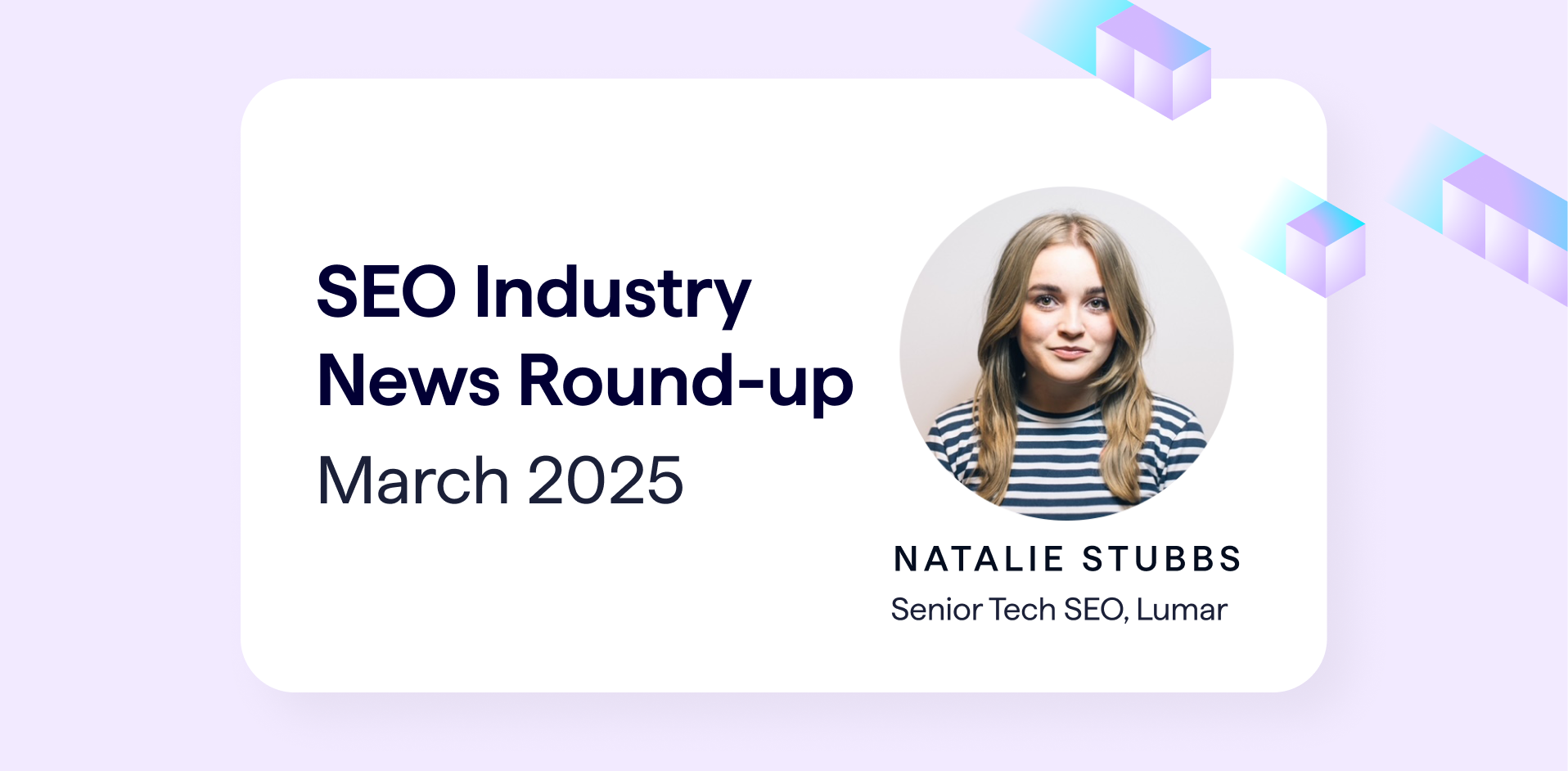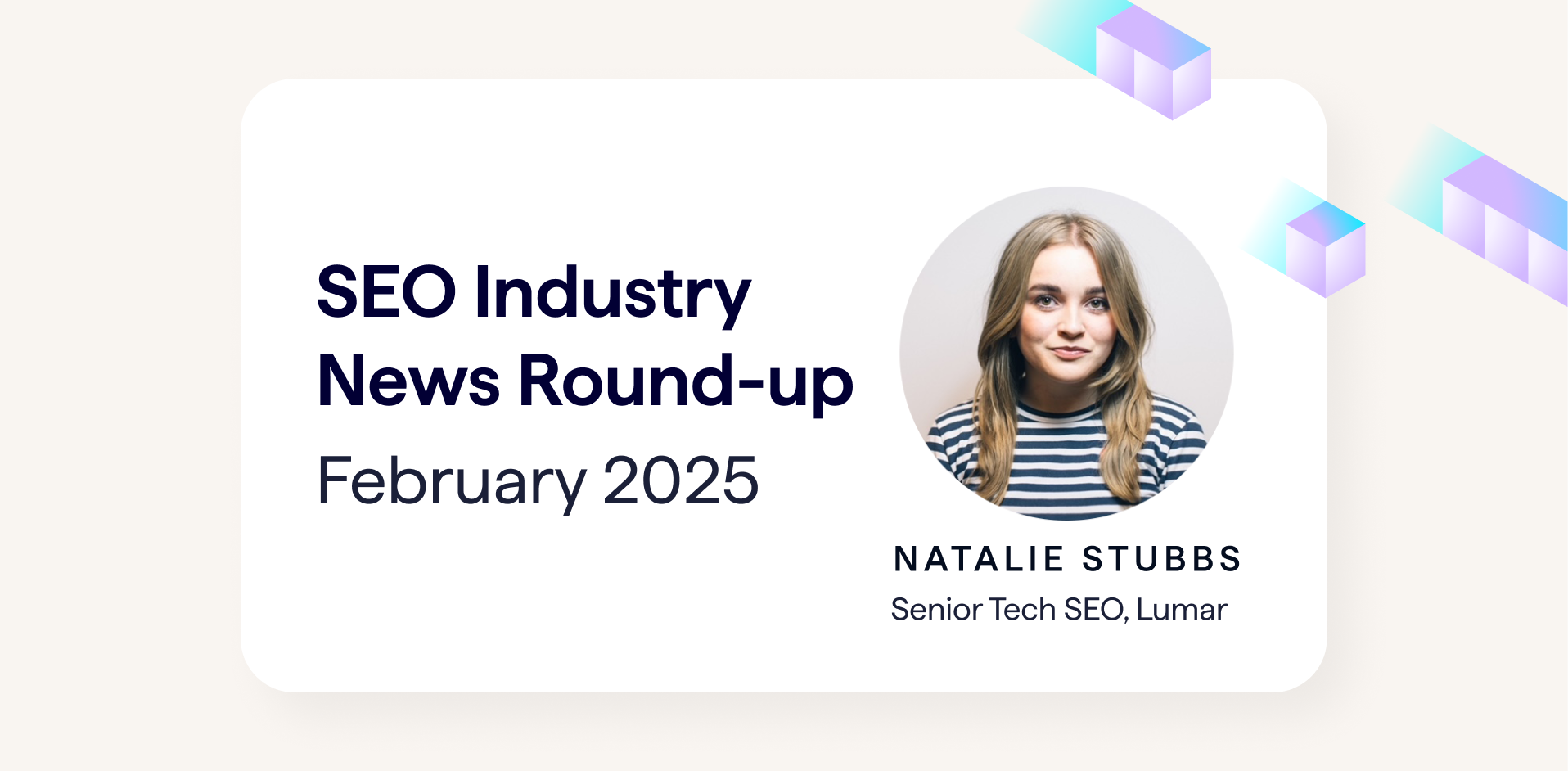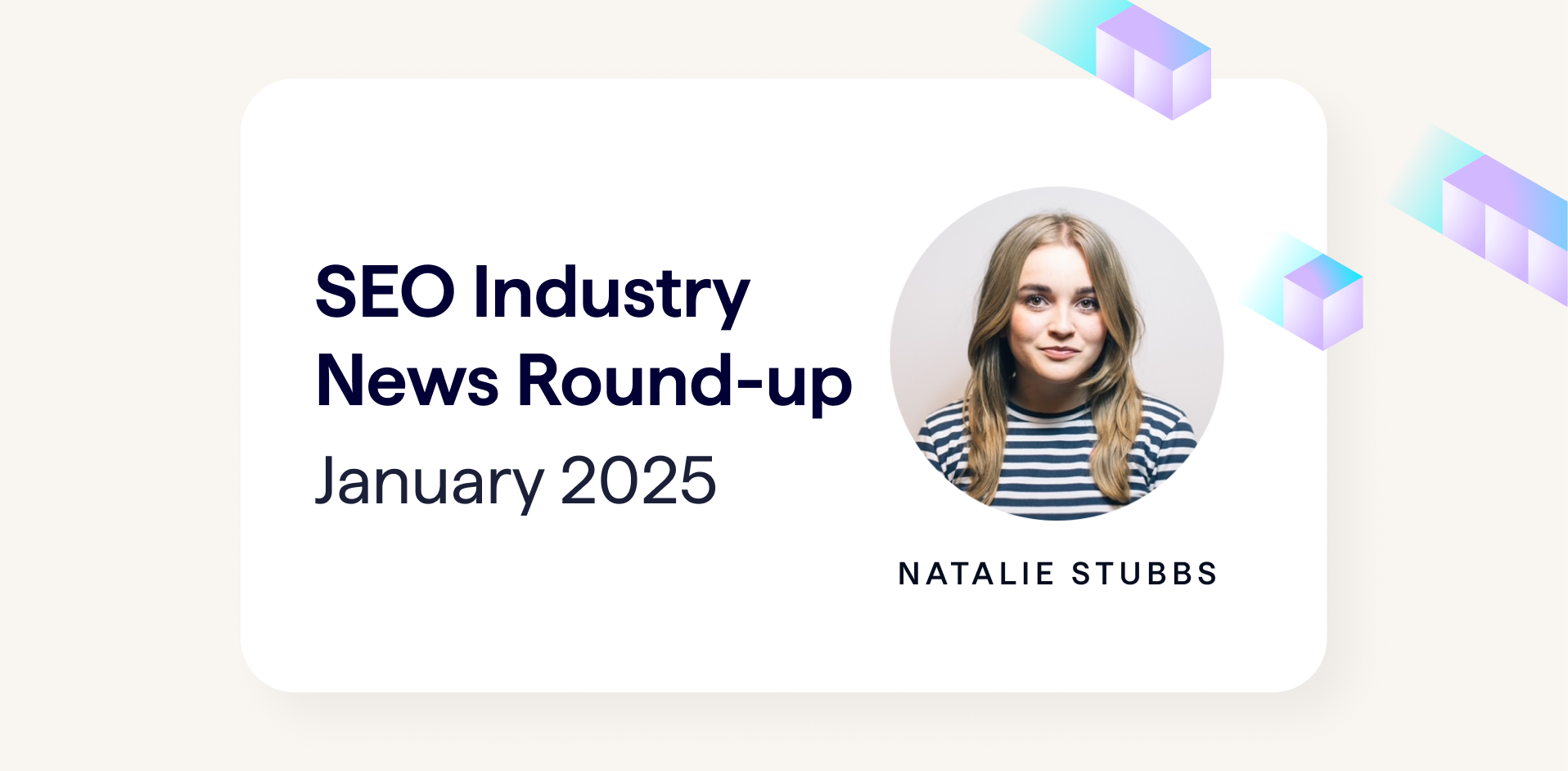Don’t forget to subscribe to the new Lumar podcast on Spotify to stay up-to-date with the latest episodes.
We’re kicking off the launch of our new podcast, Human-First Digital, with an interview featuring SEO expert Will Critchlow, CEO and founder of SearchPilot.
Will joins Lumar host (and Senior Technical SEO) Chris Spann to discuss the state of SEO, the overwhelming presence of Reddit in Google search results, changes in search engine algorithms, and the quality of search today.
Where to listen / subscribe to the Human-First Digital Podcast
- Listen to HFD on Spotify
- Listen to HFD on Apple Podcasts
- Listen to HFD on Podbean
- Listen to HFD on Amazon Music
- Listen to HFD on Podchaser
Listen to the full podcast episode above, or read on for some of our key takeaways.
Episode 1 timestamps
- 00:00:07 – Introduction to Human First Digital
- 00:00:37 – Will Critchlow’s SEO Journey
- 00:03:05 – The Complexity of SEO Testing
- 00:06:35 – The Role of Links in SEO
- 00:11:00 – Reddit’s Dominance in Search Results
- 00:17:58 – Search Quality Discussions
- 00:22:30 – Google and the Future of Search
- 00:33:14 – Closing Thoughts
Episode 1 Recap:

“Today, I’m talking to the CEO and founder of SearchPilot, Will Critchlow, about a range of topics, including his history in SEO, the overwhelming presence in search of Reddit, and the only result for a question you have being yourself asking that same question years previous.”
— Chris Spann, Host of Human-First Digital & Senior Technical SEO at Lumar
SEO testing and variability across websites
As CEO and founder at SearchPilot, a platform that helps website teams run rapid SEO A/B tests, Will Critchlow is deeply familiar with SEO testing — and how much the results can vary from site to site.
Chris Spann explains that variability in test results is something that has always fascinated him about SEO:
“I used to work for a business that had more than one website within there and we would frequently do things where one website would make a change and see incredible benefits in some way shape or form — Lighthouse scores, clicks, whatever — and then the other sites, with very similar code bases, very similar websites — would think, ‘Brilliant, we’ll do that as well.’
And we’d make that change [on the second website] and see nothing — no difference whatsoever. How often do you see that?”
“If there were a list of things that always worked, then maybe you wouldn’t need to test them,” says Critchlow. “What works great for one site, one industry, one niche, one whatever-it-may-be, does nothing somewhere else. Or even [returns] positive and negative [results depending on the site]. We’ve seen fascinating divergent outcomes — that tends to be around things like content quality and positioning of content; that kind of thing. I think the reason this happens is: it’s such a complex system.”
The goal, according to Critchlow, is to figure out what works for your unique business and website. “We’re helping our customers figure out what makes them more money. We don’t need to be certain that it’s going to be replicable – we don’t need to know if it would help their competitor. But me, personally, as a human, I am fascinated by what works, what scales, why it works, all of that.”
“So, I think the short answer is, we definitely see that [there can be significant variability on test results for the same SEO test run on two different sites]. And it’s because it’s such a complex system. You’ve got all the variables — everything you mentioned — about the site itself, but also the competitors, the content quality is kind of slightly a less tangible variable… It’s dynamic; you’ve got Google changing stuff, all these things going on.”
With how complex and ever-changing the SEO discipline can be, it’s no wonder that specialists and platforms to support SEO efforts have long been in high demand.
“I think we’ve benefitted as an industry” from the complexity and variability of SEO, says Critchlow. “If you look back over the history of SEO, we, as an industry, unlocked such huge value and tapped into a tiny fraction of the value that Google themselves were unlocking for the world, for businesses. There was so much value out there that it didn’t matter if 80% of the stuff we tried didn’t work; the 20% paid for the 80%.”
“Where we’re at now, and this is partly why SearchPilot exists, is that the whole ecosystem is so much more mature. It’s so much more a game of inches, not yards. Especially on very large websites that have been doing SEO for decades and at this point are up against competitors who have been doing the same. It’s not enough [to only do the basics], you need a bit of the science.”
SEO on enterprise vs. SME websites
“Whenever there’s a change, an algorithm update, it’s always fascinating to me to see a lot of big people in the industry going off and doing analysis,” says Spann. When you look at more ‘black hat’ SEO types, he says, they always promote the idea that links are the most important aspect of SEO. “But in the world of being a ‘black hat’ SEO, I imagine quite often it is links because they’re new domains, right? All that tells us is that SEO is a completely different beast [depending on the website and how large or established it is at the time].”
“Is there a difference [in SEO strategy] between working with, say, an SME sort of mid-sized British business compared to working with a larger multinational?”
“Yes is the short answer,” says Critchlow. He explains that because most of SearchPilot’s customers are larger enterprise businesses, he primarily works on the top end of the scale.
“Within that [enterprise] world, it’s amazing how powerful what you put on your website is. Small tweaks can make massive differences – and that’s huge amount of money.”
In the past, working in the SEO agency world, Critchlow explains that he would sometimes see those dynamics playing out with regard to the need to have more backlinks — ”Sometimes [on smaller, newer websites] you change stuff on the website and nothing really moves until you get some more links.”
Though an important caveat to consider about the evangelizing around links coming from black hat-leaning SEO practitioners, says Critchlow, is that their jobs largely depend on link building – ”The black hat [SEOs] would want it to be links [that are key for SEO] because that’s what they know and what they can do. And the converse is true as well; there are a lot of people who would really like links not to matter and it just to be about making nicer websites, making them work better.”
“And again, going back to the history [of SEO], this whole thing needs to be called ‘competitive web-mastering’. And I’ve always quite liked that – partly because I’m quite competitive and partly because I like the hands-on implications for that. But that fact is, it [SEO] is competitive and so there’s got to be something that you can do better than other people.”
“And, historically, that’s been links. Links had been the only thing you could be radically better at because anybody can put the same words on their website and serve them up just as technically well as someone else. And I think we’re edging out of that world [where links get the most attention from some SEOs], but we can’t have left it [entirely] because there’s nothing that truly replaces that. I think user signals are probably the only other metric that has that scalability. You can love a brand or a site [you know] infinitely more than one you’ve never heard of. And so that has that scalability potential; I’m interested in that angle.”
The prevalence of Reddit in today’s Google search results
“It’s interesting – obviously, the entire industry is very annoyed at the fact that Reddit sits at the top of basically every search you do at the moment,” says Spann, “But the more I think about it, it’s not totally wrong, is it?”
“I’ve got a friend who works in VPNs and he was complaining the other day that he spent all this money on content and Reddit ranks for ‘what is the best VPN for torrenting’. (I’m sure all those people torrenting were just getting Linux distros and nothing else.) But if I want experienced-based stuff, it’s got to be Reddit because what’s the other answer? 10 different VPN companies saying ‘we’re the best one’?”
“The challenge is that it’s not sustainable, I don’t think, in either direction,” says Critchlow. “Because Google can’t become dependent on Reddit for every answer. But also, as soon as a Reddit thread ranks for that stuff, it gets spammed.”
“And so it’s true that Reddit’s pages are some of the best results for top queries — until they became those top results [and then got spammed]. So I think there’s just some creative destruction going on. I think Reddit is the right answer right now — will it be again in a year, five years’ time, 10 years’ time? Probably not.”
“This is no consolation for the one site whose niche has just been taken out [of the top search results] by Reddit, but I don’t think it’s a stable, permanent answer here. Nothing ever is.”
(Note: Will Critchlow has also posted about the increasing prevalence of Reddit in search results on LinkedIn.)
Google search quality today
With a lot of conversations happening in the industry around the quality of Google search results today, it seems SEOs (and Google search users more broadly) are torn.
“… Around this whole search quality question… I would very, very much like to know which situation we’re in,” says Critchlow, “Are we in a ‘search quality is actually fine’ not worse than it has been in the past? Sure, it’s good in some areas, bad in some areas, but it’s such an immense long tail.”
“None of us are looking at the whole picture, right? So we’re seeing this weird little lens on different areas, and in certain areas, it’s got worse, and so we’ve gone into this kind of doom loop.”
“But in truth, maybe search quality is fine? That still could be a problem for Google, because the vibes are bad, right? Bad vibes lead them to do silly things (SGE).”
“But that’s one possibility. There’s another possibility which is search quality has gotten worse but only because the web has gotten worse, right? So the search quality is as good relative to the quality of the web yeah as it’s ever been.”
“I’m not making value judgments on these things; they can good or bad for users or Google. Or the catastrophic [possibility] is that like genuinely search quality has actually cratered and Google is threatened as a result. Now, I want to know, A, which is true, but also, which does Google think, truly, honestly, quietly, in private?”
“Because all of the indications we’ve seen publicly are that they think some combination of one and two. They talked about their metrics showing search quality is still fine, users are as satisfied as they’ve ever been, etc. Maybe? I actually could believe it. One of my contrarian perspectives is that maybe that is true and this whole thing is vibes.”
“Could well be,” agrees Spann, “There are definitely things that stand out, but again, I never know how much of it is me being an SEO.”
“And we have this tendency to think about obvious searches. And the vast majority of searches are not the obvious searches. They are not even in the cohort of searches that Stat look at. Or you see these big studies, and I love them, and I’m a big fan of their work, but they’re not looking at trillions of queries — and there are trillions of queries. So the only people who can do that at scale are the search engines themselves. So only they really know. And that’s definitely a wall I would like to be a fly on.”
Listen to the full podcast above to hear the much more detailed conversation, including discussions of deep learning in search algorithms and more about the state of Google search.
Connect with this episode’s speakers
- Guest: Will Critchlow, CEO & Founder, SearchPilot
- Host: Chris Spann, Senior Technical SEO, Lumar





